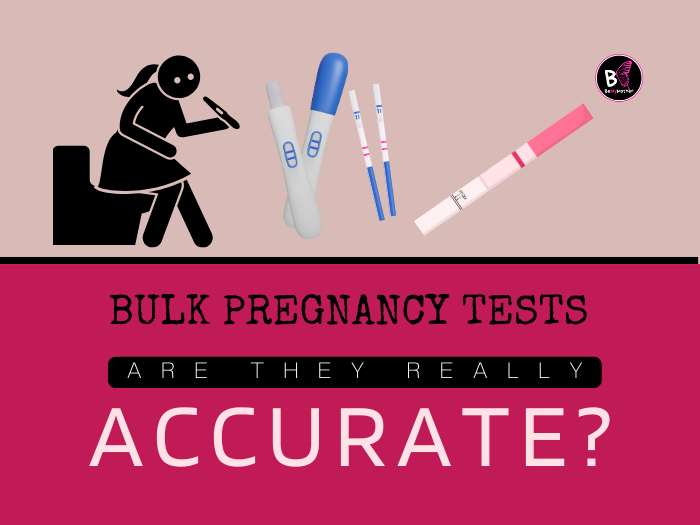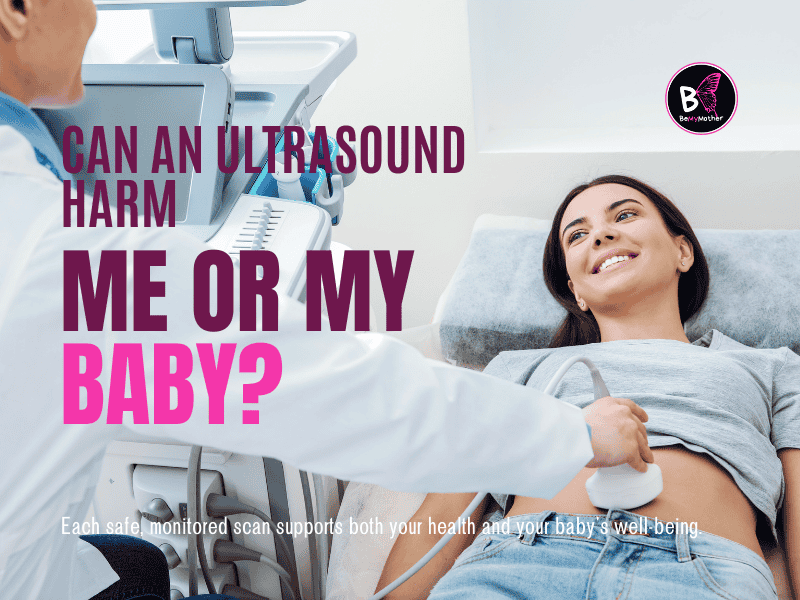For those actively trying to conceive (TTC) or monitoring for an unexpected pregnancy, the cost of repeatedly purchasing pregnancy tests can add up quickly. To save money, many individuals opt for bulk pregnancy tests, which are significantly more affordable than name-brand options. But do these budget-friendly alternatives provide accurate and reliable results?
This article takes a closer look at whether bulk pregnancy tests are a smart investment, comparing their effectiveness to higher-priced brands. Additionally, it provides essential tips on how to use them correctly to ensure the most accurate readings. If you’re considering bulk tests, understanding their reliability can help you make an informed decision.
1. Bulk Pregnancy Tests: Are They Reliable and Accurate?
Bulk pregnancy tests are just as accurate as name-brand tests when used correctly. Most FDA-approved bulk pregnancy tests detect human chorionic gonadotropin (hCG), the hormone produced during pregnancy.
Factors Affecting Pregnancy Test Accuracy:
✔ hCG Sensitivity: Tests with a lower detection threshold (e.g., 10mIU/mL) can detect pregnancy earlier.
✔ Timing: Testing too early can result in false negatives.
✔ Urine Concentration: First-morning urine has the highest hCG levels for accurate results.
✔ Test Quality: FDA-approved bulk tests are as reliable as expensive brands when used properly.
🔍 Research Insight: A study in the Journal of the American Board of Family Medicine found that while most pregnancy tests claim high accuracy, real-life accuracy varies due to factors like user error and test sensitivity. Proper use is key to reliable results.
Source: pmc.ncbi.nlm.nih.gov
2. Are Expensive Pregnancy Tests More Accurate Than Bulk Pregnancy Tests?
Many believe expensive pregnancy tests are more accurate than bulk pregnancy tests, but this is a myth. Both types function similarly by detecting hCG levels in urine.
| Feature | Bulk Pregnancy Tests | Expensive Name-Brand Tests |
| Accuracy | 99% (if used correctly) | 99% (if used correctly) |
| Sensitivity | Varies by brand (10-25 mIU/mL) | Varies by brand (10-25 mIU/mL) |
| Packaging | Test strips, no casing | Plastic casing, digital options |
| Extra Features | No digital readout | Digital, “weeks estimator” |
🔍 Research Insight: According to Planned Parenthood, both bulk and expensive tests are about 99% accurate when used correctly. Price differences mainly reflect extra features like digital displays, not accuracy.
Source: plannedparenthood.org
3. Different Types of Pregnancy Tests: Which One Should You Choose?

There are three main types of pregnancy tests:
✔ Urine Tests: Most bulk pregnancy tests fall into this category. These detect hCG in urine and can be dip strips or plastic-cased tests.
✔ Blood Tests: Only done in doctor’s offices. More sensitive and detects lower hCG levels earlier than urine tests.
✔ Digital Tests: Provide a clear “pregnant” or “not pregnant” result, often with a weeks estimator.
🔍 Research Insight: The Cleveland Clinic states that when used correctly, at-home pregnancy tests have an accuracy rate of 98-99%. Bulk tests, if FDA-approved, are a cost-effective option for frequent testing.
Source: my.clevelandclinic.org
💡 Related Article: Looking for reliable ways to track your fertility? Can Inito Detect Pregnancy? 8 Essential Facts About Fertility Tracking You Shouldn’t Miss explores how advanced at-home tests compare to bulk pregnancy tests, helping you make informed choices.
4. Pros and Cons of Bulk Pregnancy Tests vs. Higher-Priced Options
Cheapest most sensitive Early Detection Pregnancy Tests on the market || Watch this before Testing !
Pros of Bulk Pregnancy Tests:
✔ Cost-Effective: Buying in bulk saves money, making frequent testing affordable.
✔ Same Accuracy: 99% accurate when used properly.
✔ Great for TTC Couples: Frequent testers benefit from lower costs.
Cons of Bulk Pregnancy Tests:
❌ No Digital Readout: Strip tests require interpreting faint lines, which can be confusing.
❌ Less User-Friendly: Dipping a strip in a cup is less convenient than midstream tests.
🔍 Research Insight: Parents Magazine reports that low-cost pregnancy tests are up to 99% accurate when used correctly. The biggest advantage of bulk tests is affordability, but they lack digital features.
Source: parents.com
💡 Related Article: Wondering if urgent care is the right place for pregnancy confirmation? Does Urgent Care Do Pregnancy Tests? Everything You Need to Know in 8 Clear Points breaks down when and where to test for the most accurate results.
5. When and How to Use Bulk Pregnancy Tests for the Most Accurate Results

Best Practices for Using Bulk Pregnancy Tests:
✔ Test with first-morning urine for higher hCG concentration.
✔ Wait at least 10-14 days after ovulation before testing.
✔ If testing early, use a test with 10mIU/mL sensitivity.
✔ Follow test instructions carefully to avoid false negatives.
Best Time to Take a Pregnancy Test:
| Time Since Ovulation | Chances of a Positive Test |
| 7-9 days | Very low (~30%) |
| 10-12 days | Higher (~60-80%) |
| 14+ days | Best time (~99%) |
6. False Negatives, False Positives, and Common Testing Mistakes

Getting an inaccurate pregnancy test result can be confusing and frustrating. Understanding common testing mistakes can help ensure more reliable results. Here’s what to watch out for:
Common Reasons for False Negatives:
✔ Testing too early: If taken before hCG levels rise enough, the test may not detect pregnancy.
✔ Diluted urine: Drinking excessive water before testing can lower hCG concentration, leading to a false negative.
✔ Expired test strips: Always check the expiration date, as outdated tests may not work correctly.
Common Reasons for False Positives:
✔ Evaporation lines: A faint, grayish line appearing after the test dries does not indicate pregnancy.
✔ Chemical pregnancy: A very early miscarriage may briefly trigger a positive result before hCG levels drop.
7. How Doctors Confirm Pregnancy: Beyond At-Home Testing
If an at-home test is positive, doctors confirm pregnancy with:
✔ Blood Tests (hCG Quantitative Test): Measures exact hCG levels to confirm pregnancy.
✔ Ultrasound: Used 5-6 weeks after the last period to confirm gestational sac presence.
When Should You See a Doctor?
✔ After a positive at-home test for medical confirmation.
✔ If symptoms like severe cramping or heavy bleeding occur.
💡 Related Article: Need an ultrasound after a positive test? Does Urgent Care Do Ultrasounds for Pregnancy? 10 Key Insights Every Expecting Parent Should Know guides you on your next steps after using bulk pregnancy tests.
FAQ Section: Addressing Common Concerns About Bulk Pregnancy Tests
Q1: Are bulk pregnancy tests as accurate as name-brand tests?
✔ Yes, bulk tests are just as accurate as expensive tests when used properly. The difference is mainly in packaging and digital features.
Q2: How soon can I take a pregnancy test for accurate results?
✔ The best time to test is after a missed period. Some tests detect pregnancy 10-14 days after ovulation, but waiting longer increases accuracy.
Q3: Why is my test negative, but my period is late?
✔ Possible reasons: Testing too early, diluted urine, low hCG levels, or an irregular cycle. Wait a few days and test again.
Q4: Can two pregnancy tests give false results?
✔ False negatives are more common than false positives. If symptoms persist, consult a doctor for a blood test.
Q5: Which type of pregnancy test is best?
✔ For frequent testing: Bulk pregnancy test strips.
✔ For digital results: Digital pregnancy tests.
✔ For early detection: Tests with 10mIU/mL hCG sensitivity.
Q6: How do doctors confirm pregnancy?
✔ Blood tests and ultrasounds provide the most accurate confirmation of pregnancy.
Q7: When is the best time to take a pregnancy test?
✔ Morning is best, as urine is more concentrated with hCG.
Conclusion: Are Bulk Pregnancy Tests a Smart Choice?
Yes! Bulk pregnancy tests offer an affordable and reliable alternative to expensive brands when used correctly. They are designed to detect pregnancy with the same level of accuracy, making them a great option for those trying to conceive (TTC) or testing frequently. By purchasing in bulk, you can save money without sacrificing reliability.
However, it is essential to follow the instructions carefully, test at the right time for the most accurate results and avoid common mistakes. If you receive unclear or conflicting results or need confirmation, consulting a doctor is always the best course of action for peace of mind.
💡 Related Article: Concerned about breast health during pregnancy? 11 Eye-Opening Facts About Mammogram During Pregnancy – What Research Reveals explains safe screening options if you’re expecting.



